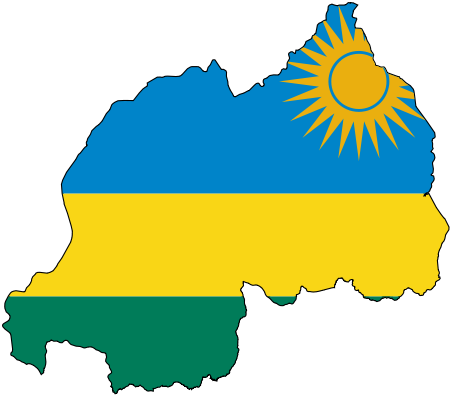Preventing Alcohol-Related Deaths through Social Detoxification
The purpose of this program is to increase access to community-based prevention strategies that provide social detoxification, evaluation, stabilization, fostering patient readiness for and entry into treatment for alcohol use, and other substance use disorders.
In alignment with the IHS 2019-2023 Strategic Plan Goal 1:
To ensure that comprehensive, culturally appropriate personal and public health services are available and accessible to American Indian and Alaska Native (AI/AN) people, the Preventing Alcohol-Related Deaths through Social Detoxification (PARD) project is designed to provide communities the ability to reduce alcohol-related mortality and encourage clients to seek additional alcohol and/or substance use disorder treatment after discharge from a detoxification program.
Indian Health Service (IHS) will use this funding to focus on the provision of services in Tribal and Urban Indian communities with the highest burden of alcohol-related deaths among AI/AN persons.
IHS analyzed the national rates of causes of deaths using the CDC data (Centers for Disease Control and Prevention, National Center for Health Statistics.
National Vital Statistics System, Mortality 1999-2020 on CDC WONDER Online Database, released in 2021), and determined that McKinley County, New Mexico (with the largest city of Gallup), continues to have the highest burden of alcohol-related deaths among AI/AN persons.
Additionally, the 2017 Senate Appropriations Committee Report 114–281 expressed the Committee’s expectation that IHS address alcohol and substance abuse through Federal, State, local, and tribal partners, calling for a sustainable model for life-saving community services, with specific attention on the capabilities of the Na’Nizhoozhi Center in Gallup, New Mexico.
A consensus among clinical and subject matter experts understand detoxification does not provide the full spectrum of alcohol and/or substance use disorder treatment but can serve as a pathway to seeking treatment and as a component in the continuum of services for alcohol and substance use disorders (Substance Abuse and Mental Health Services Administration (SAMHSA) Treatment Improvement Protocol (TIP) 45 (https://www.samhsa.gov/resource/ebp/tip-45-detoxification-substance-abuse-treatment).
In alignment with the IHS 2019-2023 Strategic Plan Goal 1:
To ensure that comprehensive, culturally appropriate personal and public health services are available and accessible to American Indian and Alaska Native (AI/AN) people, the Preventing Alcohol-Related Deaths through Social Detoxification (PARD) project is designed to provide communities the ability to reduce alcohol-related mortality and encourage clients to seek additional alcohol and/or substance use disorder treatment after discharge from a detoxification program.
Indian Health Service (IHS) will use this funding to focus on the provision of services in Tribal and Urban Indian communities with the highest burden of alcohol-related deaths among AI/AN persons.
IHS analyzed the national rates of causes of deaths using the CDC data (Centers for Disease Control and Prevention, National Center for Health Statistics.
National Vital Statistics System, Mortality 1999-2020 on CDC WONDER Online Database, released in 2021), and determined that McKinley County, New Mexico (with the largest city of Gallup), continues to have the highest burden of alcohol-related deaths among AI/AN persons.
Additionally, the 2017 Senate Appropriations Committee Report 114–281 expressed the Committee’s expectation that IHS address alcohol and substance abuse through Federal, State, local, and tribal partners, calling for a sustainable model for life-saving community services, with specific attention on the capabilities of the Na’Nizhoozhi Center in Gallup, New Mexico.
A consensus among clinical and subject matter experts understand detoxification does not provide the full spectrum of alcohol and/or substance use disorder treatment but can serve as a pathway to seeking treatment and as a component in the continuum of services for alcohol and substance use disorders (Substance Abuse and Mental Health Services Administration (SAMHSA) Treatment Improvement Protocol (TIP) 45 (https://www.samhsa.gov/resource/ebp/tip-45-detoxification-substance-abuse-treatment).
Agency: Department of Health and Human Services
Office: Indian Health Service
Estimated Funding: $2,000,000
Office: Indian Health Service
Estimated Funding: $2,000,000
Obtain Full Opportunity Text:
Full Notice of Funding Opportunity on the Federal Register
Additional Information of Eligibility:
To be eligible for this funding opportunity an applicant will be a public or private institution operated by a state, local, Tribal, or private entity that operates direct, on-site alcohol and/or substance use disorder treatment services, including social alcohol detoxification services, to American Indian and Alaska Native (AI/AN) persons.
For purposes of this announcement, “institution” means an entity that provides substance use disorder treatment services including detoxification.
Applicants must be able to start services on the first day of the award.
Applicants must serve AI/AN persons.
Full Opportunity Web Address:
https://www.federalregister.gov/d/2023-04151
Contact:
Agency Email Description:
Division of Grants Management
Agency Email:
Date Posted:
2023-03-01
Application Due Date:
Archive Date:
2023-04-30
Social Entrepreneurship
Spotlight
Rwanda as Social Entrepreneur Fund Beneficiary

The Republic of Rwanda has been picked as one of the six African countries as beneficiaries for a new fellowship fund program designed at supporting social entrepreneurs in tackling issues on food security.
